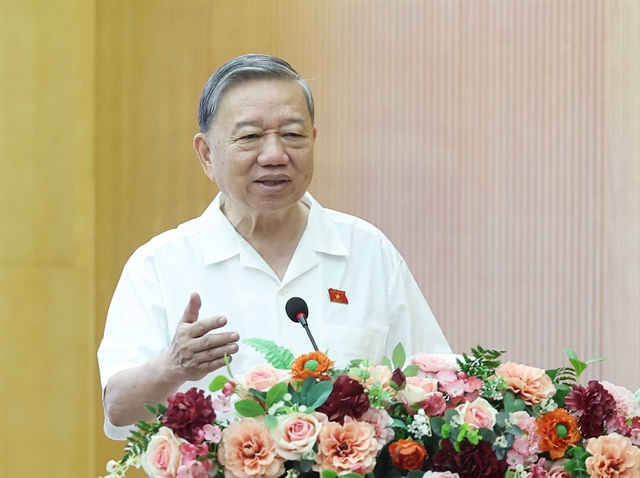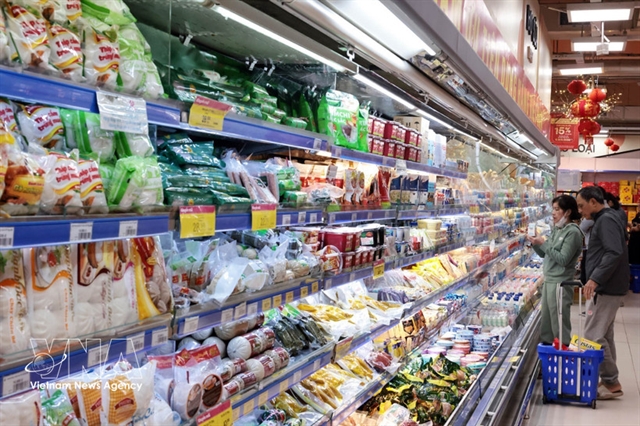 Society
Society


|
| Party General Secretary Tô Lâm. — VNA/VNS Photo |
HÀ NỘI — Party General Secretary Tô Lâm has called on the people to combat wastefulness and make thrift a daily habit.
“We should build a culture of thrift, make the practice of saving and combatting wastefulness a matter of self-discipline, voluntary commitment and an integral part of everyday life – like daily meals and clothing,” he wrote in an article on thrift released on Sunday.
He proposed choosing a National Day of Thrift to promote and spread the movement throughout society.
The top leader said thrift and the fight against wastefulness are two pillars that lead to prosperity and wealth, whether at the level of the family, the nation or society as a whole. Practising thrift and combatting wastefulness are essential actions in the daily lives of individuals and society. They form a foundational cornerstone in building a civilised and sustainable society, he said.
“This must be regarded as a shared responsibility and should become a lifestyle and a part of our everyday culture,” he added.
Party chief Lâm mentioned President Hồ Chí Minh as a role model for practising thrift.
Immediately after leading the successful August Revolution, amid threats of famine, illiteracy and foreign invasion, at the first meeting of the Provisional Government of the Democratic Republic of Việt Nam on September 3, 1945, President Hồ Chí Minh identified six urgent tasks.
Among them, he particularly emphasised launching a movement to increase production and practise thrift in order to combat hunger and build the nation.
Throughout various stages of the revolution, the Party and State have paid special attention to fighting waste, considering it a top national policy, he said.
Highlighting that being thrifty has yielded many positive outcomes for the entire Party, citizens and armed forces, Lâm said cutting down on regular expenditures, not accepting congratulatory flowers at anniversary events, shortening conferences or holding them virtually or without printed documents are good examples of the practice of thrift.
Restructuring the Government apparatus and streamlining at both central and local levels since late 2024 has cut costs and created favourable conditions, allowing for tuition fee exemptions for students, he said.
Provincial mergers, removing district-level administrative units and consolidating commune-level units is also estimated to generate substantial savings.
Regular expenditure savings from the State budget are projected at over VNĐ20trillion per year during the 2025–30 period, and over VNĐ30 trillion per year from 2030 onward, according to the Party chief.
He also pointed out several shortcomings. For example, the practice of thrift has yet to become a regular and consistent habit.
It has not become a constant point of awareness for a portion of officials, Party members, civil servants, public employees and the general public. Wastefulness persists not only within State agencies, but also in various aspects of social and everyday life among the people, Lâm said.
A programme on practising thrift and combatting wastefulness remains largely formal and has yet to be effectively integrated into the practical daily life of each agency, unit, locality, household and individual, he noted.
He said thrift and fighting wastefulness must serve as a fundamental solution to help the country overcome turbulence in order to meet the highest requirements in the new revolution phase, as agreed at the 11th Plenum of the Party Central Committee. This will help the nation successfully achieve its two Centennial Goals and to restructure the apparatus.
“Every citizen as well as all agencies, units, organisations and enterprises must develop specific plans on reasonable and efficient budget collection and spending,” the Party chief said.
To make the structure run smoothly after streamlining, aside from management skills, passion, responsibility and attitude, practising thrift is a major criteria for officials in the new system, he said.
Lâm also called for tightening discipline in financial management, efficiently using State financial resources and private resources.
He urged cutting unnecessary expenditures to ensure resources for disaster and epidemic prevention, while striving to increase spending on scientific and technological development, innovation, the national digital transformation and support for private economic development.
He also encouraged cutting down on administrative procedure compliance costs to ensure the greatest possible convenience for citizens and businesses as a key solution to practise thrift and combat wastefulness.
This year, relevant ministries and agencies must ensure that 100 per cent of administrative procedures related to businesses are conducted online seamlessly and efficiently, he said. — VNS




